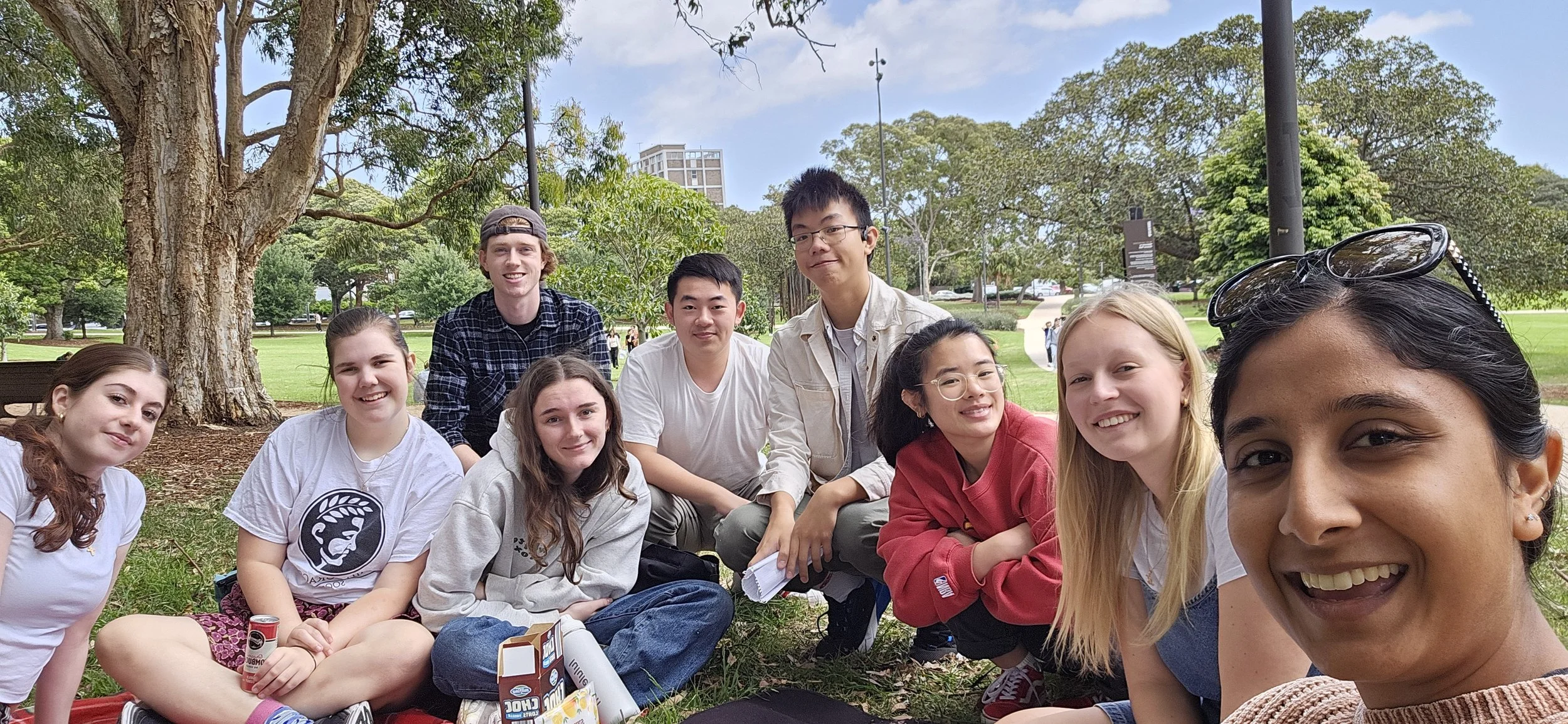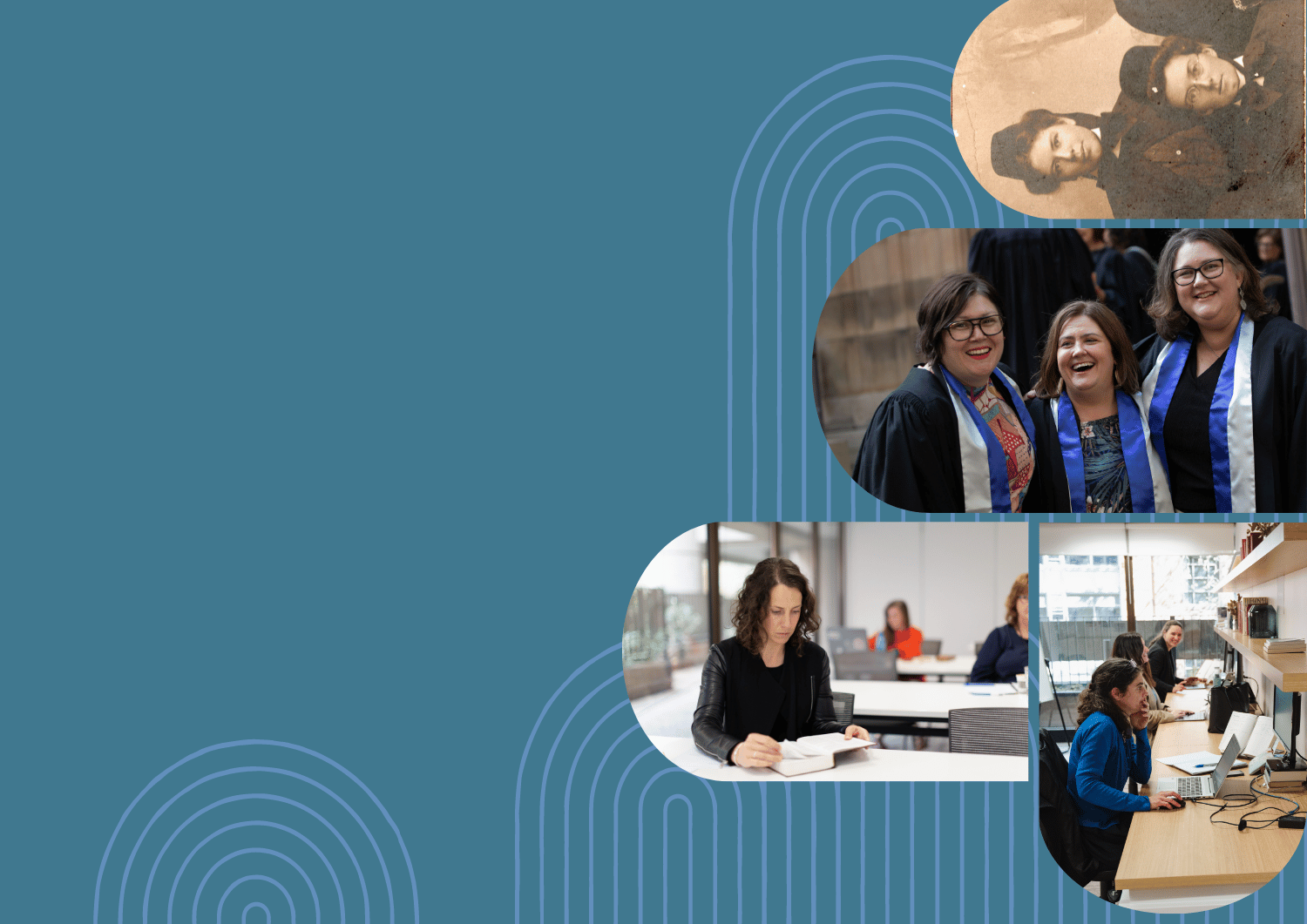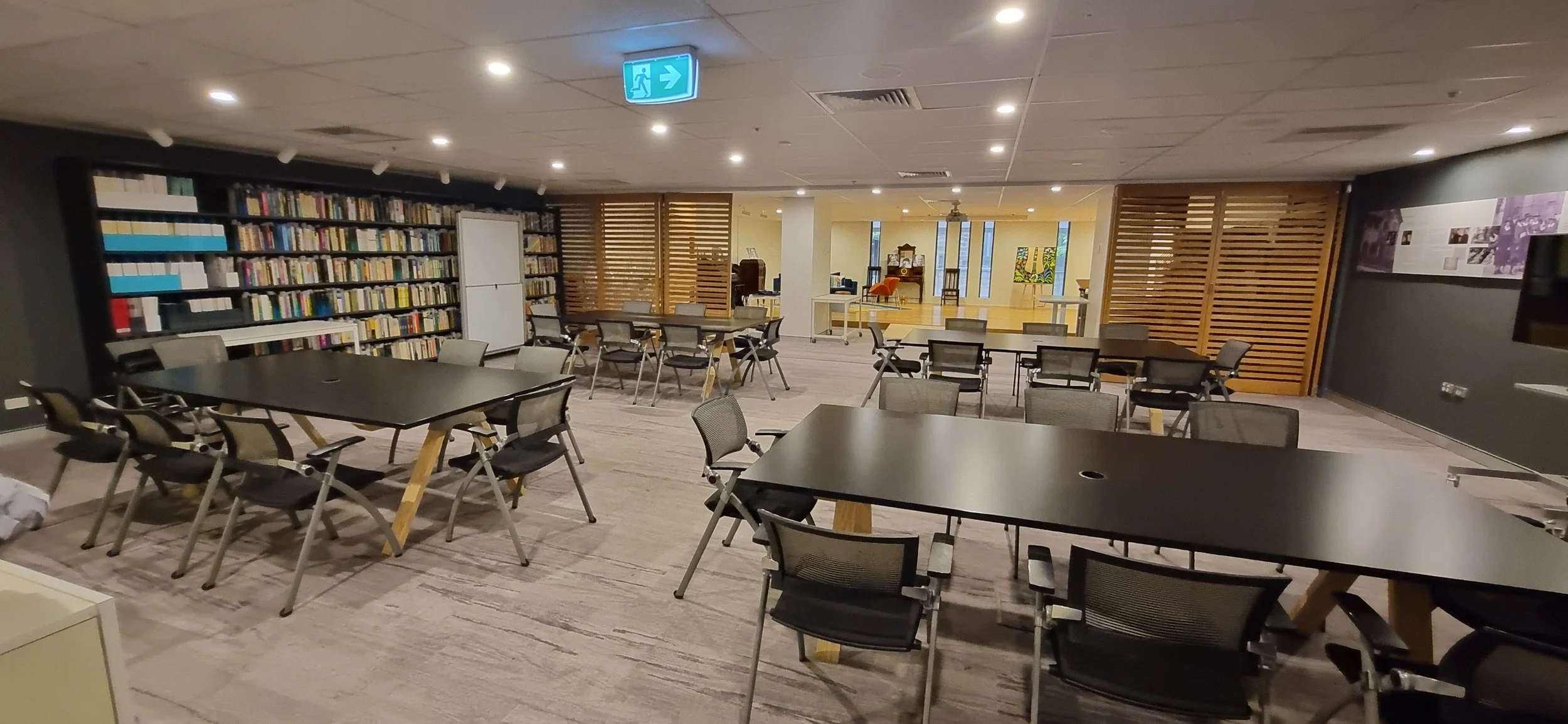Living the Gospel across cultures
Q&A with Amanda Mason, 2020 ADM Senior Fellow
Amanda Mason is an Evangelist and Community Chaplain with the Sydney Anglican Department of Evangelism and New Churches. During her Fellowship at ADM this year, she’s creating accessible resources to equip Australian churches in discipling Buddhist-background believers and mobilise them to reach their families and social networks.
ADM: You grew up intersecting various cultures. Tell us about that.
AMANDA: I often answer that kind of a question by saying I have a Western brain and a Thai heart. That is, my heart and emotions have been shaped by my experience of being parented by a single Thai mother. While my brain has been shaped by my thoroughly Western education (in Australia), I continue to live at a cultural intersection on many levels. Besides being multi-racial, I am also bi-vocational, balancing my work week between ADM’s ministry-based fellowship with work I do in public mental health. Both mean I’m learning to communicate complex material (the gospel or mental health education) to people from diverse health experiences and spiritualities.
ADM: When you first heard about Jesus in high school, what was it about him that made you want to follow him? How has that shaped your vision for ministry and evangelism today?
AMANDA: It was his people! The inclusive character of the Christian communities I experienced as I heard the message of grace drew me in as I was ‘experimenting’ with the idea of Christian commitment. Intuitively, I knew it was Christ’s love reflected in their love for one another. And the thing that most shaped my vision for ministry and evangelism was why this community and message of irresistible grace seemed so irrelevant to my Thai mother. Sixteen-year old me couldn’t reconcile that. God had created and sent his Son to redeem the whole world. Today’s me is still actively reconciling that on behalf of and alongside the whole community my mother represents, i.e., those intelligent, cultured people who just happen to have Southeast Asian Buddhist cultural formative experiences.
ADM: Word Association Time: What’s the first thing that comes to mind when you hear…
AMANDA:
Home – Landing place
Dinner – Ever changing
Grace – Beautiful
Creativity – Borne of necessity
Favourite place – On a swing by the water somewhere
Silence – Golden (This is an Ambivert speaking)
Church – Churches, Diverse expressions of what it means to be the people of God.
Disciple – Invest
Joy – I think of a person. A Thai woman re-named Joy because of her response to the gospel!
“Intuitively, I knew it was Christ’s love reflected in their love for one another.”
ADM: This year, you’re working as an ADM Fellow on a project that helps Christians better understand how to reach out to those in Buddhist communities. Tell us a little about the resources you’re creating and what you hope they’ll inspire/do.
AMANDA: I’m hoping to ignite a constructive discussion about the evangelism and discipleship needs among people from southeast Asian Buddhist cultural backgrounds. That is, how God’s love can be shared in a way that is understandable and responsive to what Buddhists are really concerned about. Things like family life or fear of ghosts which can dominate southeast Asian popular media. These themes receive far more emphasis in the southeast Asian worldview; we just don’t address them in Aussie pulpits or discipleship as a matter of course. All the while they’re great bridges to understanding who God is.
I’m hoping that by giving us things to talk about, we will see an Australian network of mutually supportive collaborators emerge with concern for culturally sensitive evangelism and discipleship. I’m also hoping to see our local churches inspired to identify Christian leaders from southeast Asian Buddhist backgrounds to lead us all in active ministry to this people group. And in turn, see our local Australian understanding enhanced by the perspectives which mature Buddhist-background believers bring to the gospel.
With that goal in view, this year, I’m summarizing insights from a series of specific missions books, where each book represents a collection of articles authored by Western and non-Western Christ followers who explore essential aspects of Buddhist worldview. My summaries will hopefully serve as a resource, then, that captures central insights from the authors of this book series for communication that’s accessible and helpful. Think drip-fed social media etc. to help us better serve others to live life to the full, reconciled with their Heavenly Father.
ADM: What do you most wish evangelicals would understand about friends or neighbours from other religions?
AMANDA: That following Jesus is about more than just individual conversions. Each affects an entire community!
ADM: In your work as a community chaplain and evangelist, what gives you hope? What inspires you each morning?
AMANDA: I can’t really give you a day in the life since every day is different and sometimes I feel like I’m flailing. That is, I feel like I don’t fulfil the role, or get to take it as far as I’d like because there’s such a lack of infrastructure supporting this kind of ministry. Compared with being a university ministry staff worker, a parish staff team or even an ADM Fellow, you’re so isolated. You’re usually caught up spending so much time inventing the infrastructure for the position. Like fund raising.
That said, I love what I get to do. Because on any given day my vine-work might involve:
Teaching children bible stories. When Thai parents ask, I help them set a pattern of reading these stories to their children.
Spending 4+ hours at a friend’s house, doing what I’m invited to do - whether eating Thai food or playing with kids or getting to know their neighbours, that is, building relationships by sharing struggles in the natural ways of life.
Attending church where Thai people attend or inquiring why things at church are going the way they are between different cultural groups.
Running a basic bible study using the storytelling method (which, incidentally, I learned alongside John Bales, who coordinated Muslim outreach in Sydney).
Performing the role of cultural broker to enhance an existing local church ministry.
Amanda (right) as a child
ADM: Serving as a ‘cultural broker’? What does that mean for you?
The most common definition is acting as a bridge, linking or mediating between groups or persons of different cultural backgrounds for the purpose of reducing conflict or producing change. For us in Christian community, it’s trying to overcome superfluous and often misunderstood cultural elements so that the Jesus in the gospels is clearly presented, without hindrance, and we’re fulfilling the ministry of reconciliation that Paul talks about in 2Corinthians.
The role I’ve played (as cultural broker) has been slanted toward my gifts and drawn from my bicultural make up, half-Australian, half-Thai. There are people who could be better fulfilling the evangelist and community chaplain role, who are doing real hard work without the infrastructure I’m seeking to build. For instance, one Thai couple, a pastor and his wife, a nurse, occasionally send me prayer points via Facebook. They’ll ask me to pray for them because they have less than $10 in their bank account. They’re not despairing, just asking me to pray. And they have two kids.
At those moments, my faith is united with theirs in the God we know will provide. I’m not sure that most of us in Australian ministries would let things get to that point and still keep serving in faith. So I feel like I’m fulfilling my vocation when I’m supporting relationships between that Thai person and their local Christian community. There is little point if I’m just linking them to me and not to Jesus and his people.














Bibles and barbecues: how Living Water is reaching Redfern
Living Water, a church plant under the Evangelism and New Churches arm of the Anglican Diocese of Sydney, regularly holds services and gatherings in Redfern Park, rather than inside their building. By doing this, they are better able to engage with the community of Redfern, and also support their largely Indigenous congregation to embrace their connection to country.
Recently, Living Water Church, through one of their team members Bridget Allen, were recipients of a Women in Ministry Support Scheme grant from ADM. Part of this grant has been used to purchase a portable barbeque which the church uses to cook during their outside gatherings. This can draw a crowd as people approach for a tasty meal, and then meet the church members and hear the gospel proclaimed.